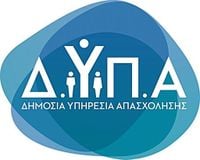On April 2, 2025, the pilot application of the new unemployment benefit program by the Public Employment Service (DYPA) officially commenced, aiming to assist 15,000 unemployed individuals who meet specific long-term unemployment and income criteria. This initiative is a significant shift in Greece's approach to unemployment benefits, designed to better align with the current labor market dynamics and provide more equitable support to those affected by job loss.
The eligibility criteria for this new benefit are stringent. Unemployed individuals must have become unemployed on or after March 28, 2025, and the amount they will receive must exceed the current unemployment benefit of 540 euros. Additionally, candidates must not have received unemployment benefits in the last three years. This new framework aims to create a more proactive and fair unemployment benefit system, addressing the needs of those who have contributed significantly to the labor market.
According to DYPA, the new unemployment benefit structure is designed to be more responsive to the realities of the modern job market. It introduces a tiered benefit system, where individuals with longer work histories—specifically those who have been employed for between 4 to 20 years—will receive greater financial support, potentially reaching up to 1,295 euros during the initial months of unemployment. This is intended to provide stronger financial backing during the challenging early phases of job loss.
The pilot program is not limited by a fixed end date; it will remain active until the target of 15,000 beneficiaries is reached. The benefit is structured to decrease over time, encouraging recipients to return to work. Specifically, the unemployment benefit will be higher during the first few months—an approach that has been adopted by 17 member states of the European Union. The benefits will last for a maximum of 16 months, with the possibility of extending to 24 months for those with a work history of over five years and three months.
One of the key features of the new unemployment benefit is its emphasis on fairness and recognition of contributions made by workers. Currently, under the old system, individuals who worked for two years at minimum wage or 20 years at a higher salary receive the same unemployment benefit for the same duration. The new system rectifies this by incorporating a stable benefit component that is calculated based on a recipient's pre-unemployment earnings, starting at 70% of the statutory minimum wage or the average wage prior to unemployment.
Moreover, the program includes a variable benefit component, which serves as a bonus for those with longer employment histories. This component is calculated based on the number of years worked and the average salary, thereby linking the benefit more closely to an individual's contributions to the social security system. The goal is to ensure that the unemployment benefit is compensatory rather than merely welfare-oriented.
In addition to the primary benefits, recipients will also receive additional allowances, including holiday bonuses for Christmas and Easter, as well as extra support for single parents. This holistic approach aims to provide comprehensive support to individuals facing unemployment.
The pilot program's framework has been developed with the assistance of the Organization for Economic Cooperation and Development (OECD) and is funded by the Recovery and Resilience Facility, with a total budget of 100 million euros. The initiative marks a significant modernization of Greece's unemployment benefit system, which has been in place since the 1950s. This update is deemed necessary to meet the evolving needs of the labor market and to ensure fair and effective support for unemployed individuals.
DYPA's announcement highlights that the new system will be automated, simplifying the application process for beneficiaries. A specific algorithm is being utilized to evaluate potential beneficiaries, ensuring that those selected will receive a benefit that is equal to or greater than what they would receive under the current system. This automated approach aims to streamline the process and reduce bureaucratic hurdles for unemployed individuals seeking assistance.
The pilot program is expected to provide significant insights into the effectiveness of the new unemployment benefit structure, with the hope that it will lead to a permanent system that better serves the needs of the unemployed. By linking benefits to prior contributions and providing a more substantial initial support, the program aims to encourage a quicker return to the workforce.
As the rollout progresses, DYPA will continue to monitor the program's impact and make adjustments as necessary to ensure that it meets its objectives of fairness, efficiency, and responsiveness to the needs of the labor market. The pilot program represents a crucial step towards a more equitable unemployment support system in Greece, one that recognizes the diverse experiences of workers and provides tailored support based on their individual circumstances.
In conclusion, the new pilot unemployment benefit program by DYPA is poised to reshape the landscape of unemployment support in Greece. With its focus on fairness, automation, and responsiveness to labor market conditions, it promises to provide much-needed assistance to those navigating the challenges of unemployment.





